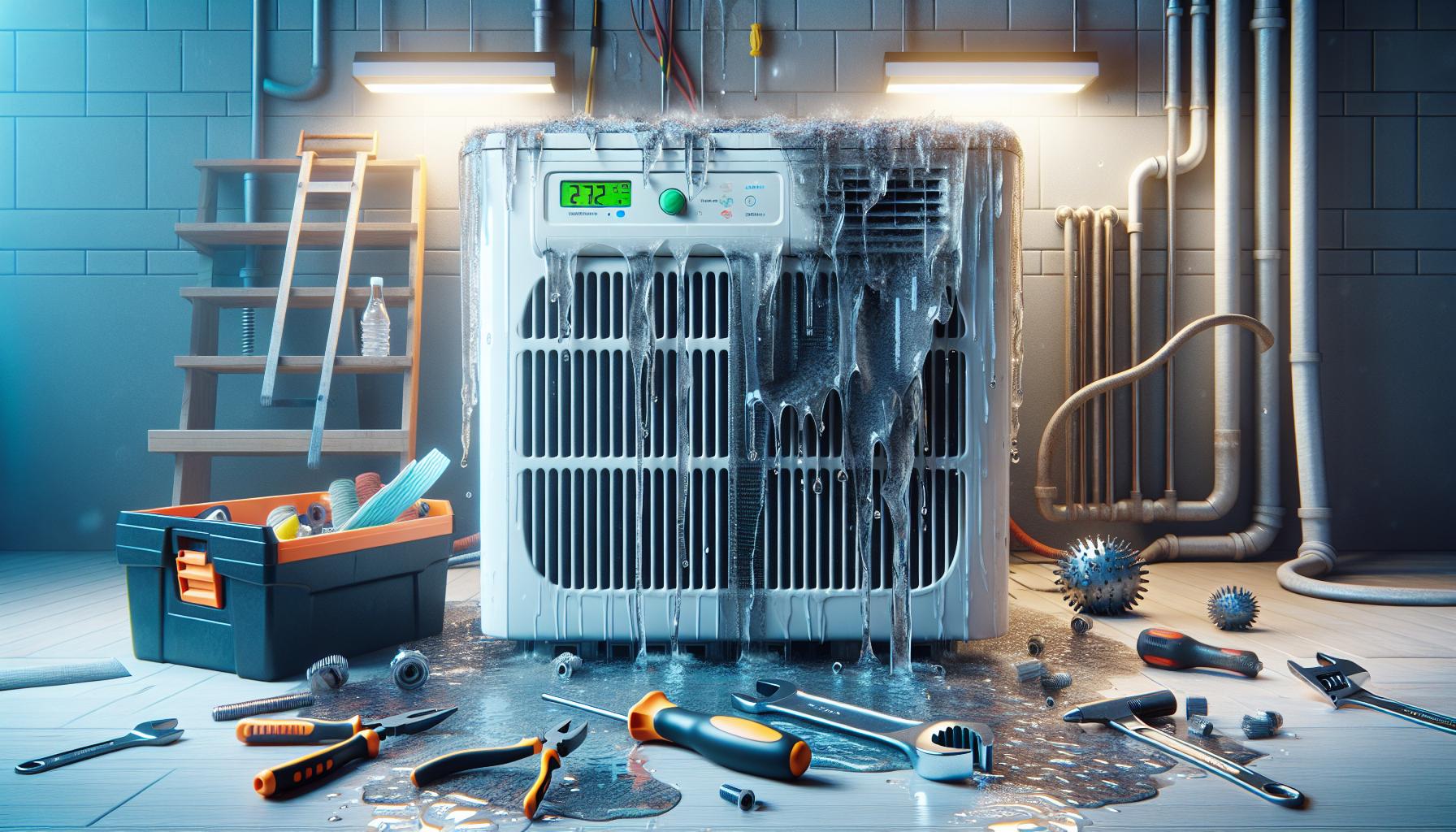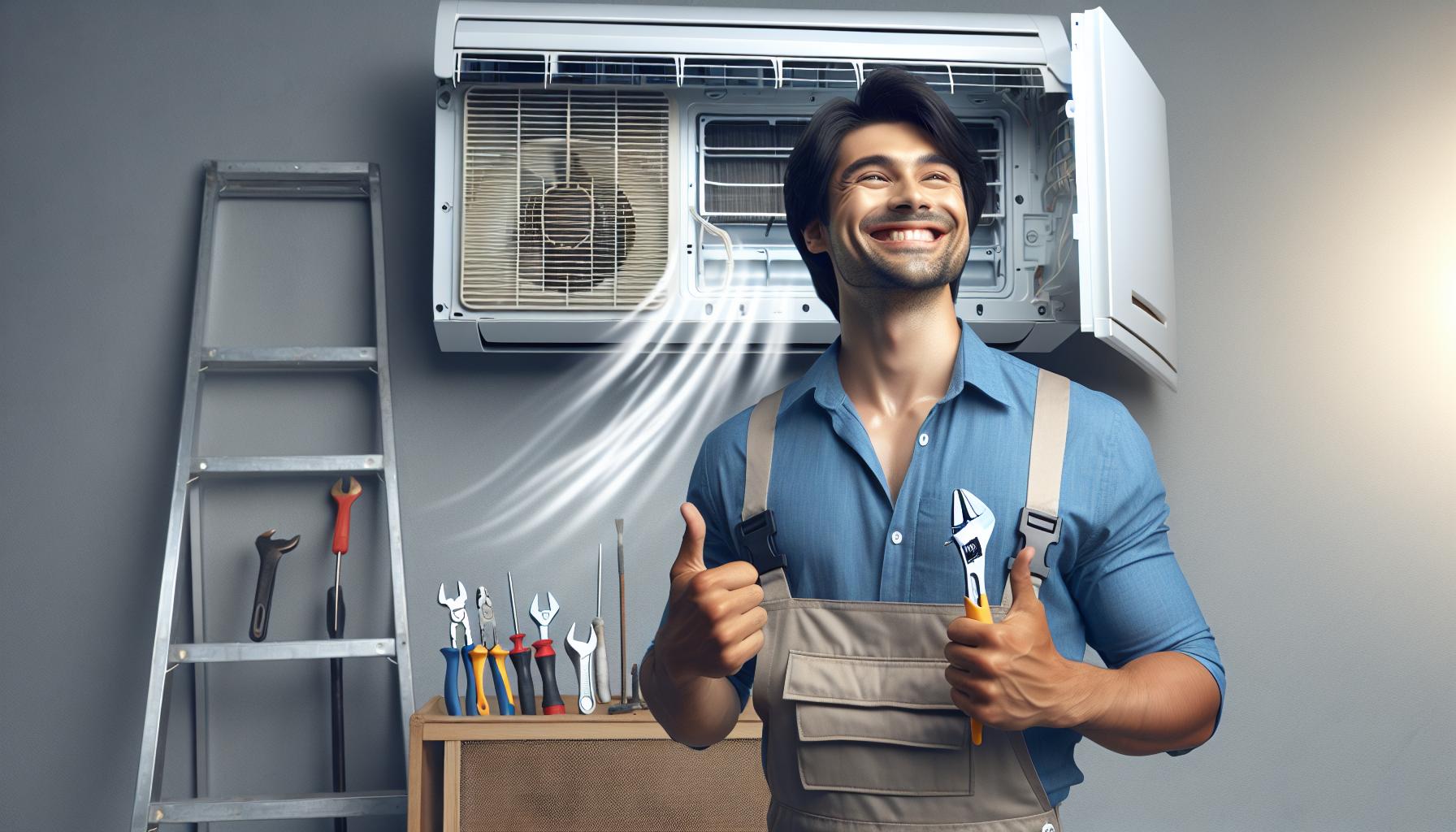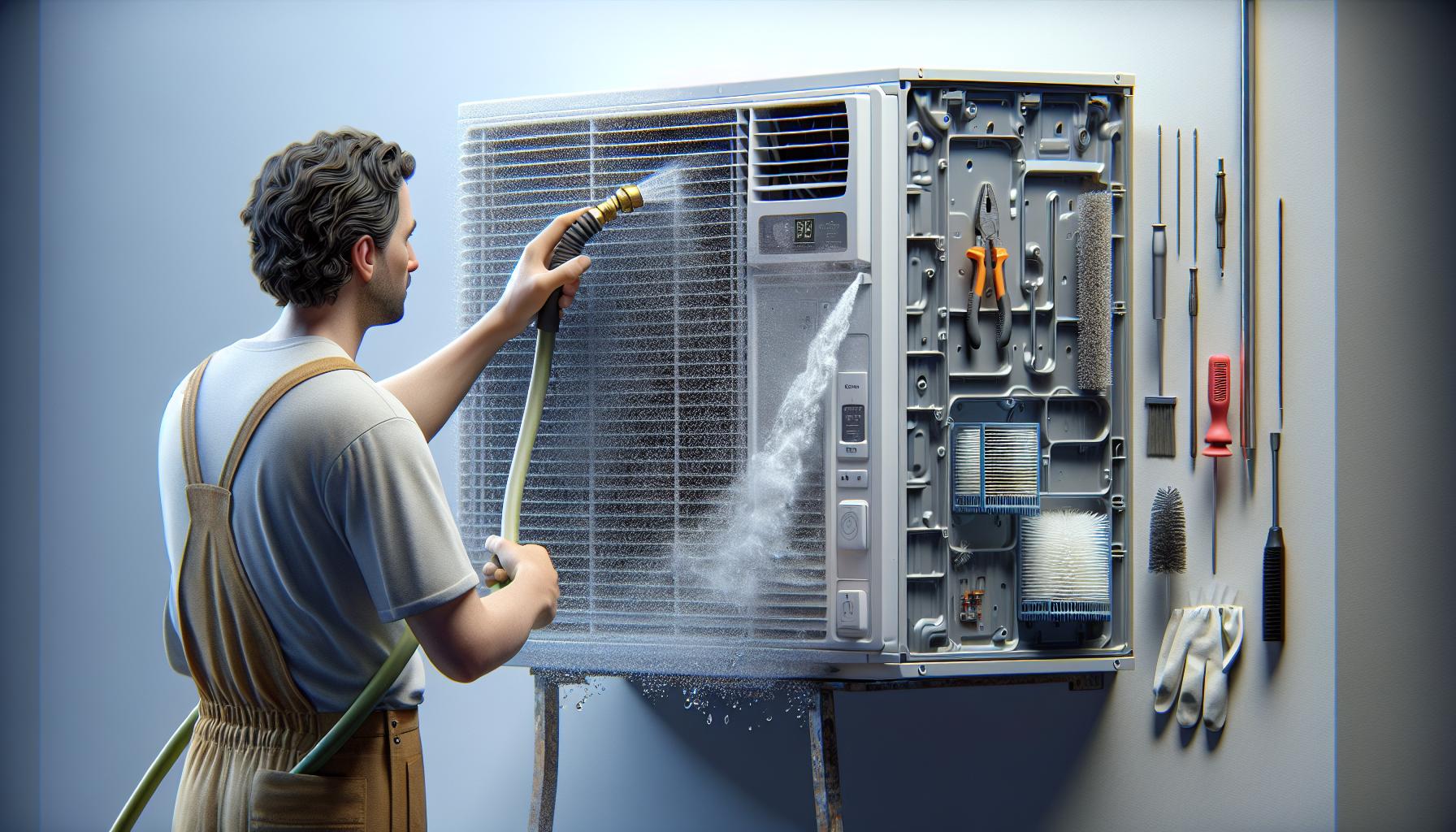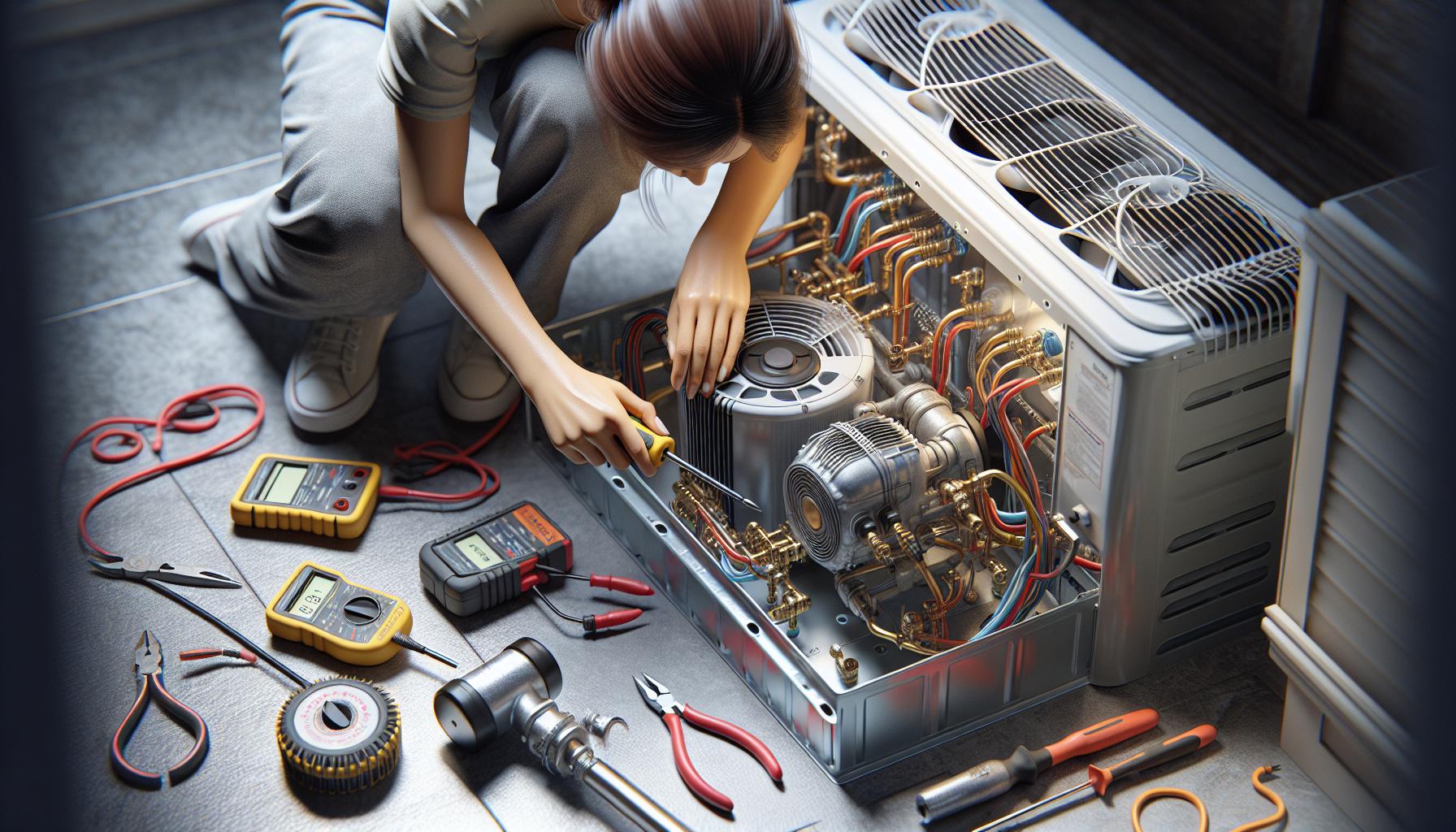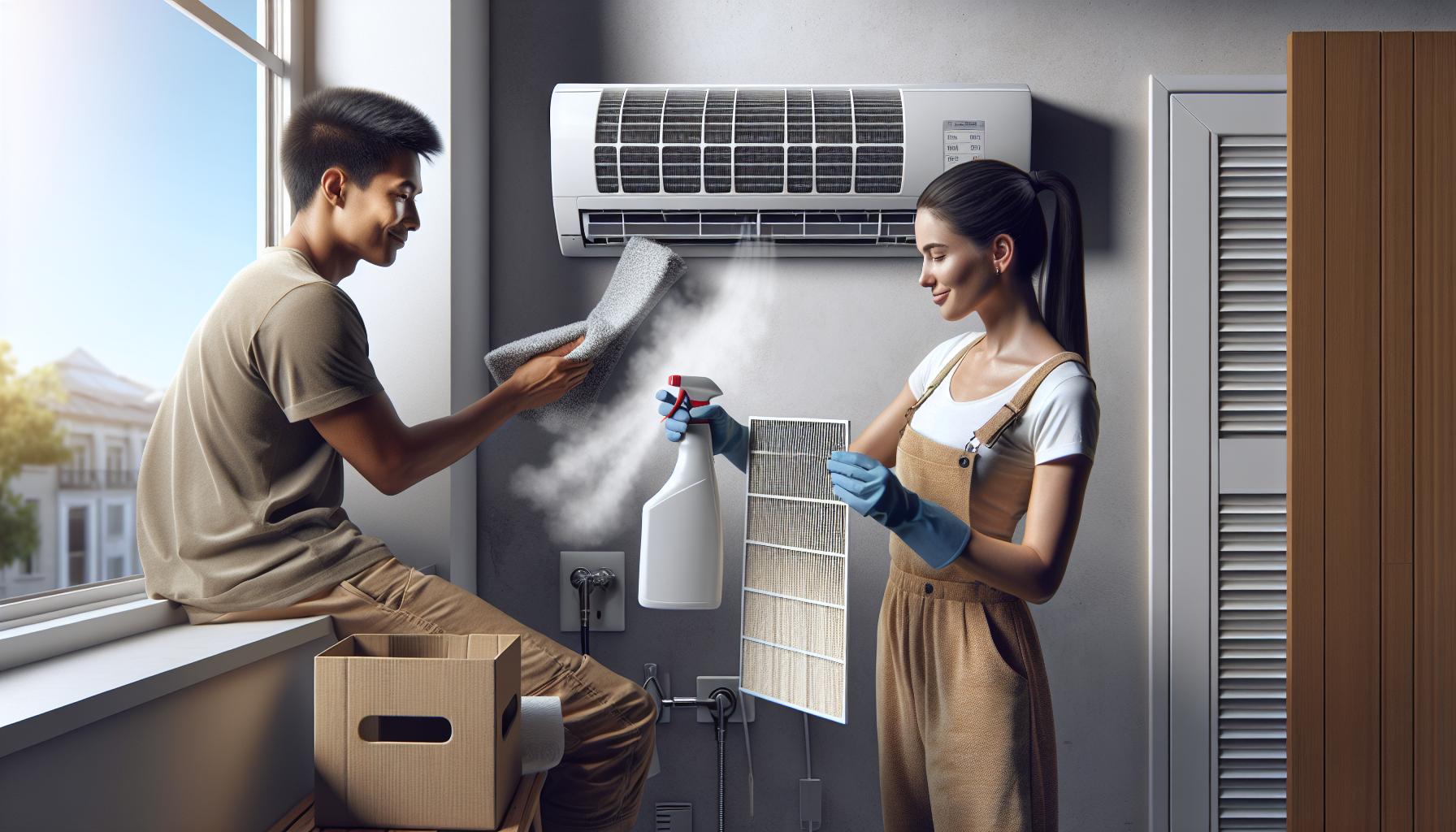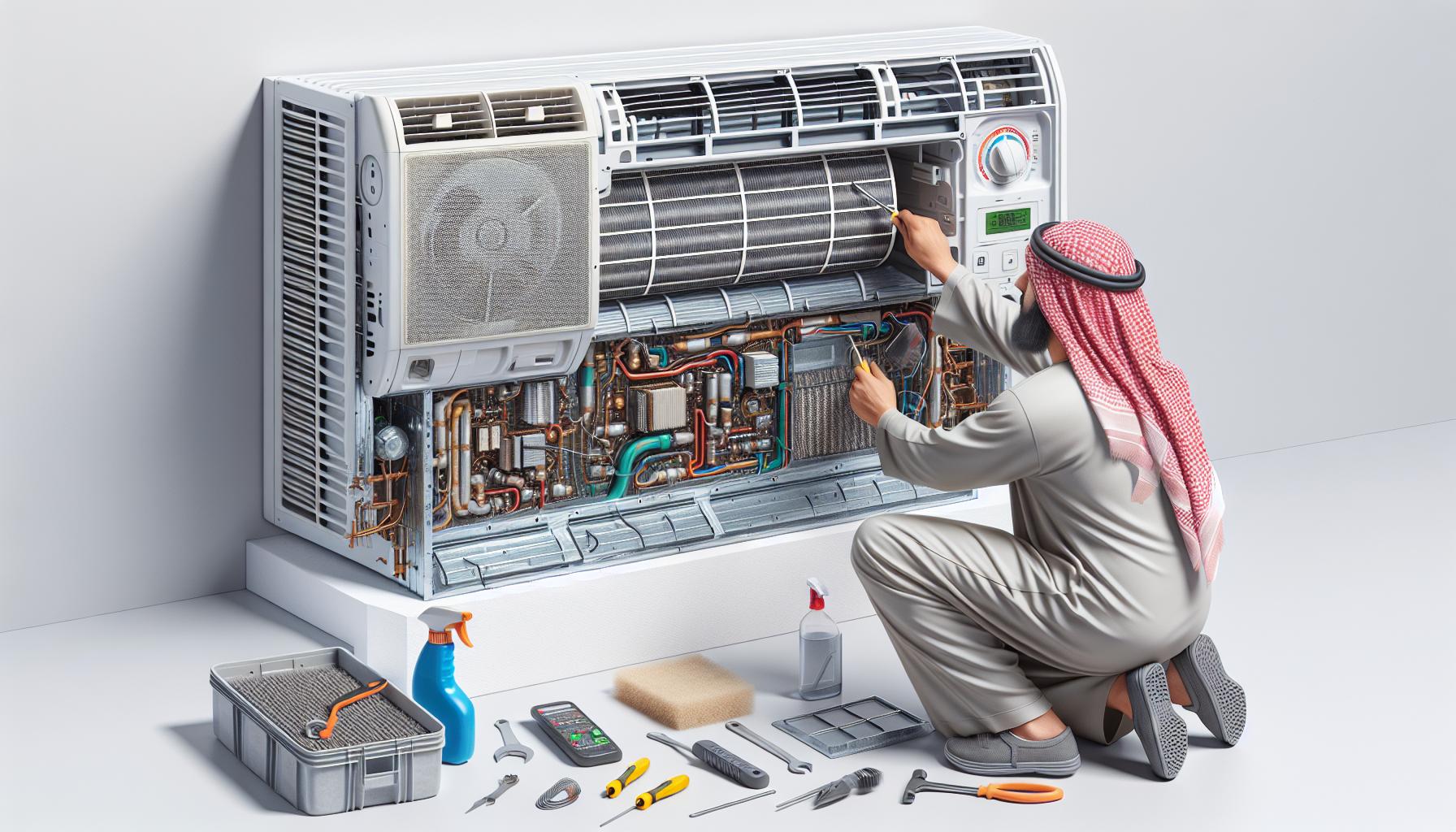Ever found yourself mopping up a puddle under your air conditioner? It’s a common issue, but when your AC starts dripping water, it’s a sign that something’s amiss. Air conditioners are designed to keep you cool and comfortable, not to double as indoor water features.
Understanding why your AC is leaking can save you time and protect your home from water damage. It’s often due to a couple of issues you might be able to tackle yourself. So before you call in the pros, let’s take a closer look at what could be causing that pesky drip.
Common Causes of Air Conditioner Dripping Water
When you notice your air conditioner dripping water, it’s crucial to pinpoint the exact cause swiftly. Here are the most common culprits:
Blocked Drain Line
Over time, dirt and debris can build up in the condensate drain line, and if it s clogged, water cannot exit and may back up into your home. Regular cleaning is vital for maintaining a clear pathway for water drainage.
Dirty Air Filters
Your air conditioner’s ability to draw air through the evaporator coil is hampered by dirty air filters. This can result in ice forming on the coil and when it melts, excessive water may overflow the drain pan.
Low Refrigerant Levels
Low refrigerant causes the pressure in your AC system to drop, leading to freezing over the evaporator coils. Similar to the issue with dirty air filters, once the ice melts, it creates more water than your system was designed to handle.
Malfunctioning Condensate Pump
If your unit is located in the basement, it likely relies on a condensate pump to expel water outside. Should this pump fail, water won’t be pumped out and will instead spill over.
By recognising these common issues, you re better prepared to tackle the problem of a dripping air conditioner. Timely maintenance checks are essential for preventing these occurrences and ensuring your AC runs efficiently.
Inadequate Drainage System

Regular maintenance of your air conditioner’s drainage system is crucial for avoiding water leakage. Ignoring this can lead to water dripping from your unit. Let’s investigate into two key components that could be at fault: the condensate drain line and the drain pan.
Clogged Condensate Drain Line
Blocked condensate drain lines are a primary reason for water leaks. Dust, dirt, and mold, which sneak past dirty air filters, can accumulate and form grimy clogs in these lines. When these clogs occur, water can’t flow out of your home as it should, leading to backup and overflow. Here’s why keeping the condensate drain line clear is essential:
- Prevents Water Damage: Regularly cleaning the drain line averts potential water overflow that could damage your property.
- Ensures Efficient AC Operation: A clear drain line ensures that your air conditioner functions efficiently, without the added stress of water backup.
- Avoids Additional Repairs: Clogs can place stress on the AC system, potentially leading to costly repairs if other components suffer damage.
If you notice a leak, inspecting the condensate drain line should be your first step. An HVAC technician can typically resolve clogged lines by unclogging and cleaning them, restoring the free flow of water.
Damaged Drain Pan
The drain pan’s role is to catch condensation from the evaporator coils. Damage or corrosion over time can compromise this component, leading to leaks. If your air conditioning unit is showing its age, inspect the pan for:
- Rust and Corrosion: Over time, pans can corrode, which can result in water leakage.
- Physical Damage: Cracks or warping in the drain pan can allow water to escape, bypassing the drainage system.
Replacing a damaged drain pan is a straightforward solution. But, it’s vital that the new pan is appropriately sized for your unit to function effectively:
- Proper Fitting: Ensuring the correct size of the drain pan is crucial for seamless operation.
- Quality Materials: Investing in a quality drain pan can prolong the life of your AC and prevent future leaks.
Remember, addressing issues with your AC’s drainage system promptly prevents more significant problems and extends the life of your air conditioner. Always consult a professional when in doubt, as they have the expertise to diagnose and resolve AC system malfunctions efficiently.
Dirty Air Filter

When your air conditioner starts dripping water, one of the first things to check is the air filter. Air filters can become dirty over time, which leads to reduced airflow. This, in turn, makes it difficult for air to reach the evaporator coil effectively. When the evaporator coil doesn’t receive enough air, it can get excessively cold and freeze.
Once the coil freezes, it disrupts the normal operation of the AC system. As the coil eventually thaws, the excess water produced from the melting ice can overwhelm the capacity of the drain pan, leading to leakages. These leakages are not just a nuisance; they can cause significant water damage if not dealt with promptly.
- Locate the air handler on the main air conditioner unit inside your home.
- The air filter could be positioned at the side, top, or bottom of the unit.
- You may need to unclip or unscrew a panel to access the filter.
- Filters should be replaced with the exact size match check the markings on the side of the existing filter to determine the size.
Regular replacement of the air filter can prevent a multitude of issues with your AC, including those annoying water leaks. As part of your routine AC maintenance, make sure the filter is clean and free from debris. A clean filter not only prevents water leakage but also ensures that your air conditioning unit functions with optimal efficiency, saving you on energy costs and prolonging the lifespan of your unit. Keep in mind that a professional can assist you if you’re unsure about the condition of your air filter or how to replace it.
Low Refrigerant Levels

When your air conditioner is dripping water, low refrigerant levels could be a contributing factor. Much like blood flowing through your veins, refrigerant is essential for your AC to operate efficiently. Let’s investigate into how low refrigerant levels can lead to water leakage.
Firstly, understand that the refrigerant in your AC system plays a pivotal role in cooling your home. It absorbs heat from the indoor air and releases it outside. But, if there is a refrigerant leak, the pressure inside your system drops, leading to decreased efficiency in heat absorption. This may cause the evaporator coils to freeze.
You’re likely to notice the ice buildup on the evaporator coils if the refrigerant is low. When your AC turns off and the coils begin to thaw, the result is an excess of water that the drip pan may not handle, hence the leak.
Plus, a low refrigerant level affects your home’s cooling. If your AC is not performing well and your home isn’t as cool as usual, checking the refrigerant should be a high priority. Unmistakable signs of a refrigerant leak include a hissing or bubbling sound this is the sound of escaping gas.
To effectively address this issue, a trained and certified HVAC technician must assess and repair the leak. It’s critical to handle refrigerants properly due to their toxicity and environmental harm. Quick detection and repair of leaks are not only essential for preventing water leakage but also for protecting your health and preventing the costly replacement of the entire unit.
Maintenance is key; schedule a regular HVAC system inspection, especially at the start of summer, to avoid low refrigerant levels and subsequent leaks. Remember, proactive checks and maintenance are always better than reactive repairs.
Frozen Evaporator Coil

Frozen evaporator coils are one of the primary reasons your air conditioner is dripping water. This tends to occur when the air filter is blocked or dirty, restricting airflow over the coils. Unimpeded airflow is crucial since your evaporator coils contain refrigerant, which absorbs heat from the air. Without proper airflow, the coils get too cold and freeze.
When the ice on the coils melts, water leaks can occur. This isn’t just a minor inconvenience; it can signal more significant issues like a damaged compressor in the making. To prevent this, it’s essential to check your air filter regularly and replace it as needed. Frozen coils not only cause water leaks but can also lead to your AC blowing warm air or none at all.
If you encounter frozen coils, the first step is to turn off your unit to prevent further damage. Do not switch it back on until the issue has been assessed and fixed.
- Inspect and replace your air filter if dirty.
- Ensure no objects are blocking airflow to the unit.
- For a temporary fix, seal any visible drip pan leaks with silicone caulk.
Remember, persistent issues with frozen evaporator coils require the attention of an HVAC technician. They’ll need to lift the AC unit and potentially replace the old drip pan with a new one to ensure the problem does not recur. Regular HVAC inspections are necessary to maintain optimal functionality and prevent the inconvenience of unforeseen leaks.
Incorrect AC Installation

When your air conditioner starts dripping water, it may be a sign of incorrect installation. A common issue is when units are installed unevenly, causing water to pool rather than drain correctly. Whether it’s a window unit tilted at the wrong angle or a central AC with poorly leveled indoor coils, improper installation can lead to water leaks. It’s vital to ensure that your AC unit is balanced during installation to allow proper water flow through the condensation line.
Also, inadequate sealing around the unit, especially in window AC installations, can allow warm air to meet the cool surfaces within, leading to excess condensation and subsequent leaks. To prevent water from dripping, check that all seals are tight and intact.
When considering the installation of HVAC systems, connections are crucial. Loose or improper connections can result in leaks that may go unnoticed during the initial setup. Always verify that all connections are secure, and the condensate line is properly attached to avoid water leakage.
If you’re dealing with a leaking AC immediately after a new setup, there’s a strong possibility that the installation process was flawed. In this case, it’s recommended to contact a professional to re-evaluate the installation. Certified technicians not only understand the nuances of a correct setup but can also ensure that your unit operates at peak efficiency while preventing future leaks.
Installation errors often include the oversight of small details, such as not properly reconnecting components after a service or leaving debris within the unit. Even the smallest gap or loose bolt can become a source of leaking. Hence, a comprehensive check post-installation or service is essential to secure all parts in place and maintain the integrity of your AC system.
Conclusion
You’ve now explored the various reasons your air conditioner might be dripping water, from drainage issues to frozen coils. Remember, proper installation is key to preventing leaks. If you’re facing persistent problems, it’s wise to call in a professional. They’ll diagnose the issue, ensuring your AC runs efficiently and leak-free. Regular maintenance is your best defence against these common AC woes. Keep your cool and your air conditioner in top shape by staying proactive about its care.
Related Posts:
- Staying Healthy: Preventing Sickness from Air Conditioners
- Upgrade Home Living with ComfortPlan: Smart Savings…
- Slash Air Conditioner Costs: Tips to Enhance…
- Top Barrie Heating and Cooling Tips for Year-Round…
- Guide to Covering a Window Air Conditioner: Protect…
- Optimise Your Gas Fireplace: Wall Mounted Thermostat Guide
